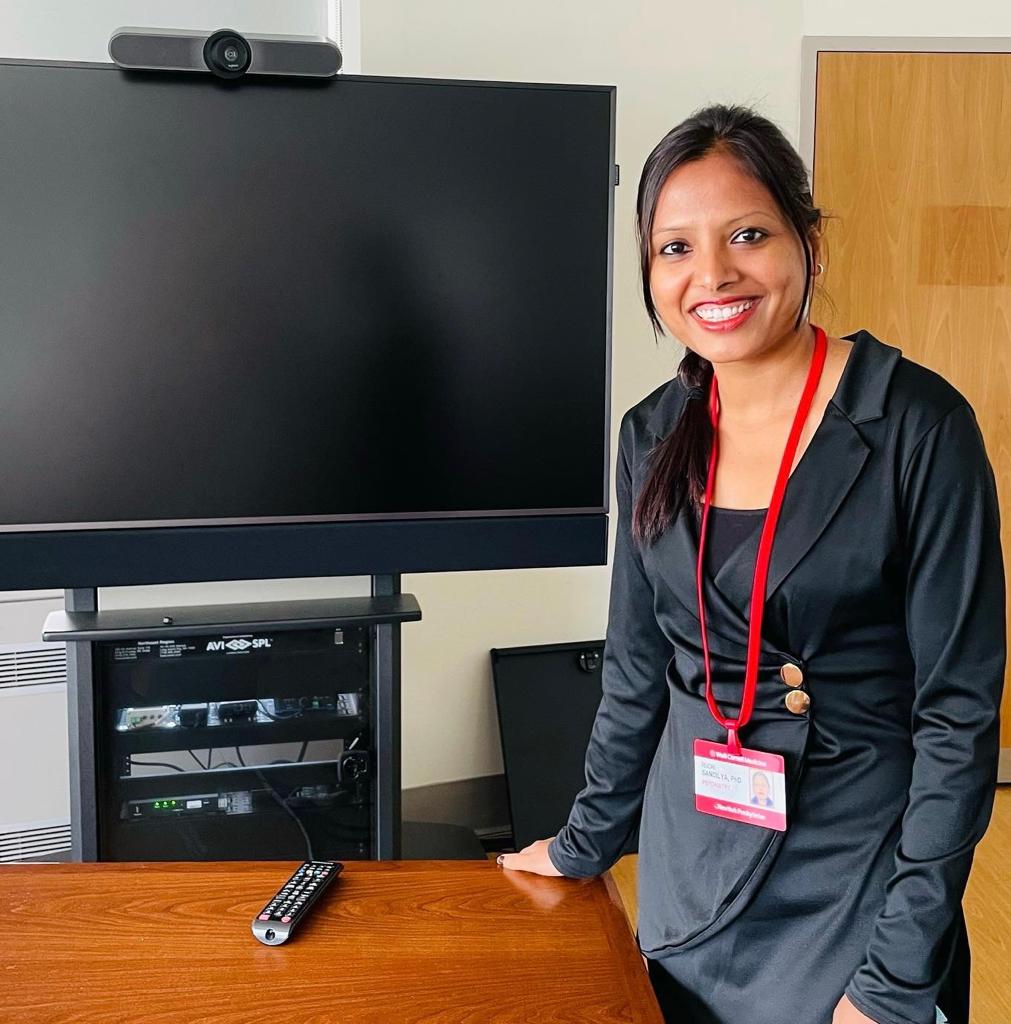Ruchi Sandilya
I am a postdoctoral researcher in the Grosenick Lab at Weill Cornell Medicine, working at the intersection of applied mathematics, control theory, and generative AI. My research focuses on developing controllable generative models for high-dimensional nonlinear dynamical systems, integrating structure-preserving numerical analysis with modern machine learning to build scientific digital twins. I apply these methods to complex physical and biomedical systems, from fluid flows and neural dynamics to brain stimulation modeling. My broader goal is to advance interpretable, mathematically grounded AI frameworks that enable discovery, control, and decision-making in scientific and medical domains.
Selected Research Projects
-
My research advances generative modeling for complex dynamical systems in the physical and biomedical sciences. I develop methods that make high-dimensional systems, ranging from fluid flows to neural activity and therapeutic neurostimulation, predictable, interpretable, and controllable. A core part of this work is Contrastive Diffusion Alignment (ConDA), a framework that organizes diffusion-model latent spaces using contrastive learning so that latent directions correspond to meaningful system dynamics. This alignment enables nonlinear trajectory traversal for interpolation, extrapolation, and controlled generation. ConDA demonstrates that diffusion embeddings naturally contain dynamical structure, and that making this structure explicit is key to creating reliable generative surrogates for real-world physical and biological processes. By integrating dynamical systems, control theory, and generative modeling, my work contributes toward data-driven digital twins and adaptive control strategies for complex physical and physiological environments
-
In this project, we introduced Quantized Graph Convolution Networks (QGCNs), a novel framework that extends CNNs to graph data, addressing the challenge of analyzing non-array-structured information such as biological and social networks. QGCNs achieve this by decomposing convolutions into non-overlapping sub-kernels, seamlessly adapting to graph structures while retaining CNN strengths. This approach, integrated into a residual network, generalizes to graphs of any size and dimension through a learnable multinomial assignment mechanism. QGCNs match or exceed state-of-the-art GNNs on benchmark datasets and excel in predicting nonlinear dynamics on finite element graphs, offering a powerful and expressive model for graph-based learning.
Paper Poster GitHub Code
-
In this project, we developed feedback control laws to stabilize unstable fluid dynamics in the Boussinesq system, which models non-isothermal fluid flows. Using a projected linearized system and solving a small-dimensional Riccati equation, we demonstrated effective stabilization of flow and temperature. This work has practical applications in optimizing energy use in buildings and aircraft by managing indoor environmental factors, crucial for energy efficiency and emissions reduction. Additionally, the COVID-19 pandemic underscored the importance of indoor air quality, further highlighting the impact of this research.
Slides Video GitHub Code
-
During my doctoral research, I developed and analyzed discontinuous finite volume methods for solving PDE-constrained optimal control problems under pointwise control constraints. My work covered semilinear elliptic, parabolic, hyperbolic problems, and Brinkman equations, with applications in cancer treatment, drug kinetics, brain dynamics, tissue engineering, aircraft design, and enhanced oil recovery. Using an optimize-then-discretize approach, I explored variational, piecewise constant, and piecewise linear control approximations, deriving a priori error estimates and validating theoretical convergence through numerical experiments. I further extended these methods to hydrocarbon extraction via immiscible fluid injection and blood flow modeling through the myocardium, demonstrating their broad applicability in engineering and biological systems.
Thesis






